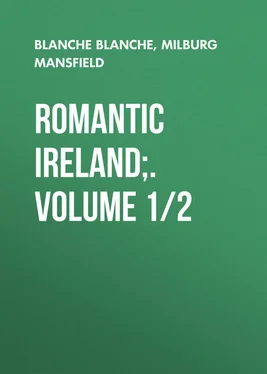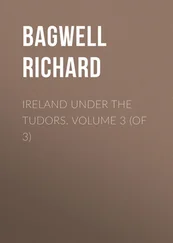A peasant in the townland of Cloomaul gives these figures. He is sixty-seven years old, and until 1860 the rent of his holding was £5 a year. In 1860 it was raised to £11 5 s. 0 d. ; twenty-eight years later the Land Commission reduced it to £6 5 s. 0 d. Meanwhile great became the stimulus to emigration, and once again the old story of “me sons beyond the sea” is given out. In some sections there is scarce a young man or a young woman to be seen. The evictions, that throughout Ireland raise the countryside as nothing else does, only bring together, with a few rare exceptions, a band of women, children, and old men. The hay harvest in England calls many of the able-bodied away temporarily, and the colonies and the United States call those who would go farther afield.
The moral aspect of the whole problem is thus put in a nutshell by the economists and Ireland’s well-wishers:
“Irish landlordism to-day represents little more than an enormous tax upon the industry of the people. It does nothing in return for the money it receives. It is, to a very large extent, non-resident. Much of it is in a bankrupt condition.”
And no wonder, when one remembers the vast proportion that is “spent out of the country.”
Mr. T. W. Russell, M.P., contributed a recent paper to the New Liberal Review on “Disturbed Ireland.” In it he takes a very gloomy view of the present situation. He says that a grave crisis is rapidly approaching, which will shake things to their foundations in Ireland; and points out that since 1868 the whole of the Irish governing class has been disestablished and disendowed. Before that year, Ireland was governed by its Protestant landlord garrison. First by one measure of reform and then by another, every cartridge has been withdrawn from the bandoliers of the garrison, which is now as powerless as it was once all-powerful. England is dealing with an absolutely crimeless country. White gloves are the order of the day, blank court calendars are reported all over the country, yet boycotting is wide-spread, and intimidation is rampant. A conspiracy to boycott is punishable, but boycotting is not in itself an offence. Hence the great part of the country has passed under the dominion of the United Irish League. What the future will actually bring forth for “poor, distressed Ireland” it is impossible to predict, but it may be presumed that other lands will go on enriching themselves by the accumulation, as citizens, of the flower of Ireland’s flock, and that this is in fact but a natural enough thinning-out process, which has obtained among other nations before now.
Конец ознакомительного фрагмента.
Текст предоставлен ООО «ЛитРес».
Прочитайте эту книгу целиком, купив полную легальную версию на ЛитРес.
Безопасно оплатить книгу можно банковской картой Visa, MasterCard, Maestro, со счета мобильного телефона, с платежного терминала, в салоне МТС или Связной, через PayPal, WebMoney, Яндекс.Деньги, QIWI Кошелек, бонусными картами или другим удобным Вам способом.












